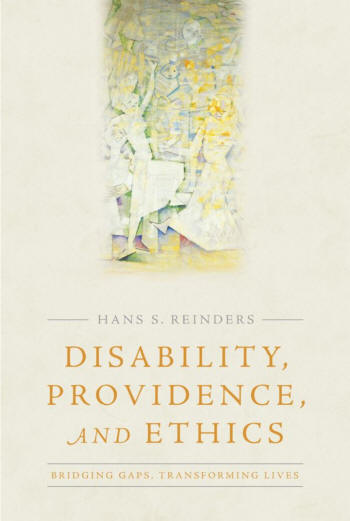Book Review
Disability, Providence and Ethics
Hans Reinders
Baylor University Press
ISBN: 978-1481300650
 Hans
Reinders is Professor of Ethics and Mental Disability at the Free
University of Amsterdam and is one of the leading philosophers in
disability studies. In this highly readable and exciting work, he examines
a central question in the problem of evil: why in the order of providence
are there disabled people? Reinders suggests that this is really the wrong
way of approaching this subject. Ultimately, a theology of providence
begins with the presence of the Spirit and not with problems of causality.
There is the inherent danger of developing "cheap theodicies" to explain
the mysterious providence of God when providence is linked to causality.
Hans
Reinders is Professor of Ethics and Mental Disability at the Free
University of Amsterdam and is one of the leading philosophers in
disability studies. In this highly readable and exciting work, he examines
a central question in the problem of evil: why in the order of providence
are there disabled people? Reinders suggests that this is really the wrong
way of approaching this subject. Ultimately, a theology of providence
begins with the presence of the Spirit and not with problems of causality.
There is the inherent danger of developing "cheap theodicies" to explain
the mysterious providence of God when providence is linked to causality.
Rather than asking the question: "why has God allowed this to happen?" we need to engage with disabled people and share our lives with them. One immediately thinks here of Jean Vanier among others. In my own clinical experience, there are not many persons who have been disabled from birth who ask the question: "why me?" Unfortunately, there are still professionals who regard the disabled as unfortunate or as people who experience constant suffering. In contrast, so many parents of the disabled see things in an entirely different way. Many speak of the great insights into life that the disabled bring them.
Apart from looking at those who have been disabled from birth, he also examines those who develop disabilities during their lives.
Many people have difficulties in not directly linking providence with causality because they want to be in complete control of their lives, something that is not possible. Presumably, this is why the principle of autonomy is the key issue in contemporary ethics. Reinders answers this by means of a theological examination of the Book of Job.
This insightful work reminds us that while the disabled are not "special" people, they are certainly not inferior to the rest of humanity.
REVIEWED BY DR PRAVIN THEVATHASAN
